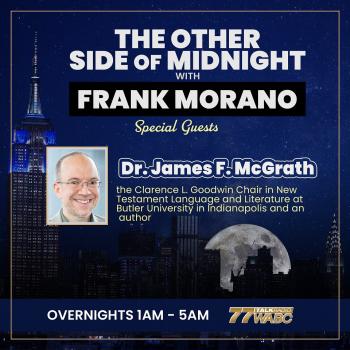One of the ideas I am exploring in connection with my research on the historical John the Baptist, and which I already make some reference to in my book What Jesus Learned from Women, is the persistence of Israelite traditions of a variety of sorts in a range of places including Galilee as well as Egypt and Mesopotamia.
Suggesting that Jesus had a heritage that was different than it might have been if he had grown up in Judaea is an area in which it is important to tread carefully. Otherwise it may sound as though one is going back to the anti-Semitic ideas promulgated by Walter Grundmann and other German New Testament scholars of the Nazi era, who tried to make Jesus and other Galileans “non-Jews.”
However, nothing of this sort is implicit in contrasting the Israelite traditions, and even the forms of Judaism of those who identified with that term connected with Judah/Judaea, in the two regions. Geza Vermes does this in speaking of Jesus as a Galilean Hasid or holy man, noting evidence from Rabbinic sources that northern piety was not simply identical with, nor always viewed favorably by, rabbis from Judaea.
I have suggested that the origin of Gnosticism may owe something to the persistence of pre-exilic Israelite beliefs in locations outside the jurisdiction of authorities in Jerusalem that promoted Torah. That is the extreme end of the range of diversity I am referring to here. Galilee was, as far as we can tell, the locus that gave birth to the Enochic tradition. That isn’t close to Gnosticism by any means, but it is a different perspective from the Torah-focused one that predominates in Judaea in the same period. Jesus may have had ancestry and family connections that linked him to both Judah and the northern tribes. People who talk about the tribes of Israel often have trouble even remembering names like Zebulun and Naphtali. The idea that the northernmost Israelites and their traditions simply vanished is less likely than that they contributed to the regional form of expression of their national religious tradition.
I think it is important to highlight this because it is a topic that is broader than (and in some ways perhaps at best tangentially related to) my work on the women who had an impact on Jesus. Too few people ask how it came to be that Galileans largely self-identified as “Jews” which in the languages spoken in that place and time was still the same word as “Judaeans.” My suggestion that there were important contributions from Israelites who were not descended from Judah to what became the Judaism of the Galilee in the time of Jesus and perhaps even later is in no way negating that Jesus and his contemporaries all embraced that term and that identity. Their ancestry was certainly predominantly or entirely Israelite, and many who lived in Judah and called themselves Judaeans may have originally had ancestors from one of the other Israelite tribes. My point here is to ask about the broader Israelite traditions that may have shaped some streams of developing Judaism in some places more than others, as the term “Jew” came increasingly to be used by all of Israelite extraction who did not identify themselves as Samaritans.
This has relevance to the study of Paul and his family as well, claiming as he does ancestry in the tribe of Benjamin even as he talks of having excelled in Judaism. There are aspects of that story, too, that deserve more attention than they’ve received, and some readers of my book may be surprised just how much Paul’s family has a place in a volume focused on the historical Jesus and what he learned from women.
















